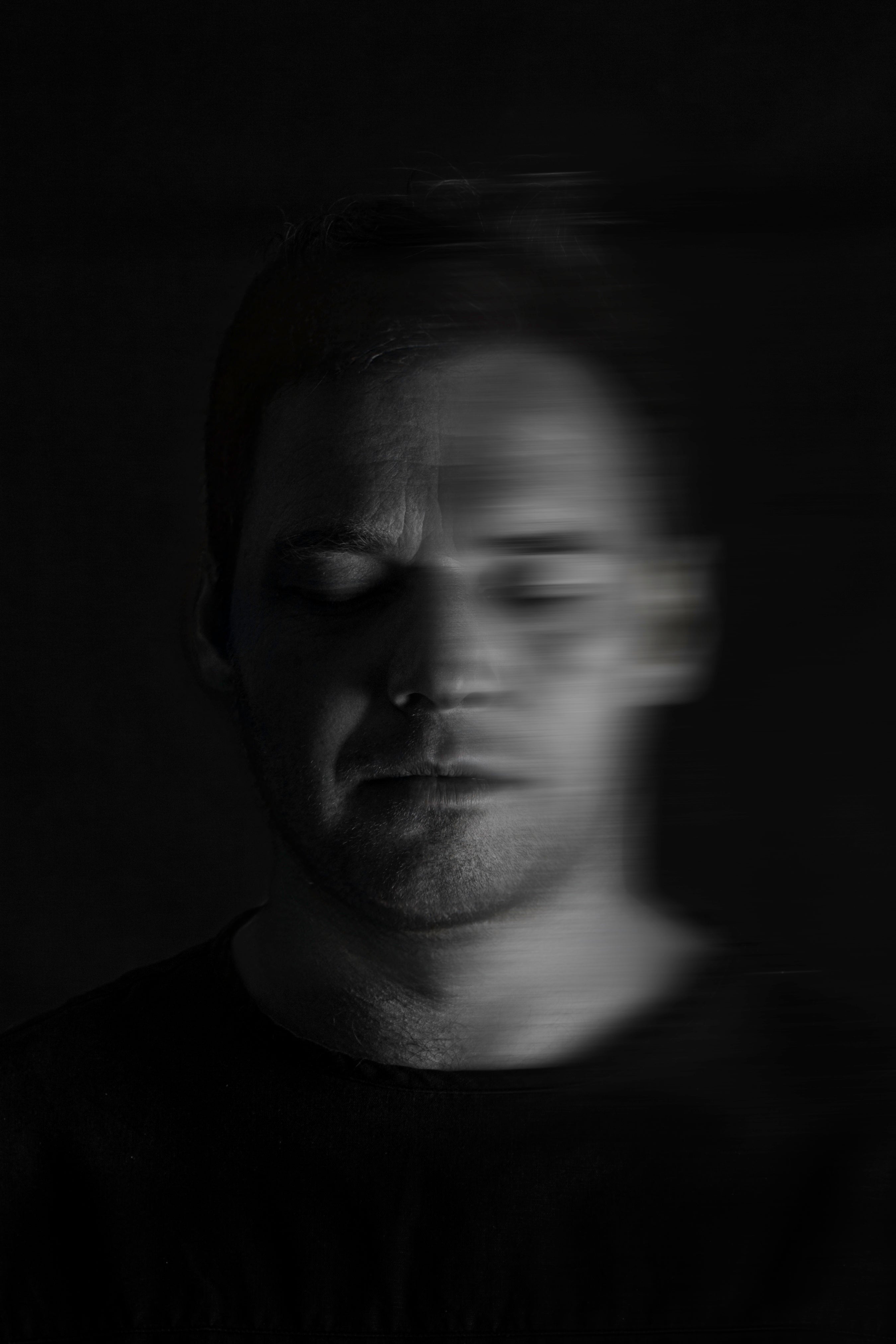
A Creative Mind - Interview with Rial Visagie
As the founder and creative director of Rialheim, Rial Visagie is an entrepreneur and creative with an optimistic outlook on the future of the company and South Africa as a whole. We recently sat down with Rial for a rare interview discussing what inspires him, his journey as an entrepreneur and what we can expect from him in years to come. Welcome to the first in our Founder's Series in the Rialheim Magazine, read on and let us know what you think in the comments below.

So you started Rialheim in 2012, almost like a rebel challenging the status quo of what home décor and design in South Africa can be, can you tell us what inspired you to start the brand and how that has shaped the collections over the years?
I think I first started the brand as an outlet to be creative. I think that was the main idea. It was discovering my creative side and then the other thing that I quickly realised is that you can make people smile, you can make people laugh, you can bring people together with what you design, which is important for me with a background in social upliftment. I believe it is important to bring people together, and then on the other hand, I realised that I can’t change the world, but I can impact the lives of the 25 people working for us. I can change their world.
So you are still very keen on social upliftment even though you've changed careers?
Yes absolutely, we want to bring people together whilst celebrating their diversity. Our Ubuntu Mug is a very good example of this. I have always believed that creativity doesn’t have a language, doesn’t have a culture, and I think that even with Café Imagination, it's a new way of bringing people together in a creative and inclusive space.
So I don’t think I have moved away from social upliftment at all, I have just found a way that is more positive to myself.
So you went into @home stores as a young brand in about 2015. That’s quite a big deal. How was that moment and how has that partnership shifted your business or changed that way you have approached the business?
Look, I think any designer would love their work to be showcased on a national/ international platform. It was a massive honour, and then there is the real impact of making it work. @home took us from an artisanal company, artisanal brand, to a brand where we can deliver anywhere internationally, from Neiman Marcus to even The Block Shop in Australia. Having seen our products that we make in our studio in Robertson on a show like The Block gave me such a sense of pride and joy and all of that started because of our relationship with @home.
So, what would you say to an aspiring local artisan? Like, how does one get a break like this? I mean, did you approach them or did they approach you?
They approached us, and I believe that in any business, there is an element of luck. In any any business there’s that moment of being at the right place, at the right time. We were invited to an off-site launch and by chance one of the buying director's from @home came to the show and wanted to see what all the hype was about. And that's how we met, so it's definitely a bit of luck mixed with hard work and also offering something truly unique, something that breaks the mould.
I think it's maybe the universe rewarding you for your hard work, but not saying that that hard work alone will get you discovered, there is an element of magic in there.
So would you still say Rialheim is classified as a small business? Or are you in a kind of transitional phase?
For me this is the exciting part of building a business, of being an entrepreneur. I think we are still a small business. I think people perceive us sometimes to be a big business, but we are still a small business. But what makes me extremely proud is that our roots as a truly South African brand have not changed, from manufacturing to our artisans to suppliers, we remain rooted in South Africa and that is what I love about the business. Even when COVID-19 hit, we had to adapt, and we approached this in a similar way to load shedding. A massive challenge for any business but we survived, and we are still going.

As Creative Director, and entrepreneur, you have to wear many hats. What roles get you excited the most in business?
There is nothing quite like seeing a product after a year of development finally being market ready. There is no feeling that can beat that.
I think, being creative excites me on so many levels, and there is a place before people see it where you fall in love with the product. Because what you have in mind, and the end products, differ wildly. But if you look at the Ubuntu Mug, it was such an easy thing to develop. It still took 6 months, but it was an easy product, because we knew from the beginning what we wanted the story to be.
So I think being a creative and and an entrepreneur are sort of interchangeable. If you work on the product, it's like a puzzle. If you work on your business and putting your business together, it’s a puzzle again. So I do feel that you use that same creativity. The only thing that you have to include is figures.
So, if you think about it, you have a product like the Ubuntu Mug which is kind of a mass market product, and you say you want one in every home, but then you also have products that are a lot more limited in numbers, a lot more niche. So, do you think you can be a collectible brand, and an everyday brand at the same time? Can these things co-exist?
So, I think for me personally, I find it insulting when people say they are going to put it away, it’s an heirloom. They don’t want to use it every day. I make these products to be used because that is what functional art is all about. When we design a collection, we definitely go for a piece, like the Evolution Man that has been photographed more than anything else, but doesn’t sell the quantities that the Ubuntu Mug does. I am excited, and that excited me about the future because how many products can we still turn out that don’t sell? Where we do sell limited? Probably below 50 units, but then we have lines where we sell thousands, and I think its really again for the consumer to decide if they want to collect it or not, but my wish is that the people have to use these products, especially the mugs, every day.
So, when you're at the studio in Robertson, you're usually in full-on creative/production mode? Can you tell us a bit about your creative process? How the products get developed? Is it a solo thing? Is it a teamwork thing? How does that work?
So I think, if I look at the I Am Vase, and it was done as a joke, on a Friday afternoon, working mostly on another piece, and I just meant like “yay, its Friday”. You go into studio and you work on a piece, and that piece then takes on a life of its own.
And while you work on another idea, you start to joke with the other artisans, and then a really great product is born, and I think that’s why the African Heart, the Biltong collection, the Ubuntu Mug sells, because its authentically made on the spot. Sometimes it’s a joke, sometimes its an intentional creative piece, but it's easier than when we go and we design something like the Evolution Man. The Evolution Man took 2 years to develop, and to get it market ready, and make sure that it doesn’t topple over, and can go through the production process, but at the same time, something like the Ubuntu Mug, its just so much shorter, and it … and, even the I Am Vase, it started as a joke on a Friday for everyone to have fun, and at the end of the day, its in @home, it’s featured quite a bit.
Because I am not a trained ceramist. I don’t have rules in my head. I think at the end of the day, a great product is being done collectively.

I know your slogan says “handcrafted in South Africa”, so when you say handcrafted, I mean, how many hands does each product go through in the manufacturing process?
So it will definitely have touched at least 15 peoples hands.
Every product is a little bit different because everyone in the studio is a little bit different. I always say that we can’t afford a bad day where our artisans are in a bad mood. You see it in the product. There is no place where people love more than being in the studio, and I think, that is even a healing process for me sometimes being an entrepreneur, the studio becomes an escape mechanism from the reality of being an entrepreneur.
So, since last year, the consumer dynamic has shifted towards locally made products more. You have always been a firm believer in boosting the local economy first. Have you seen an uptake in customers looking to support local over the last year, and do you think the trend will last?
Obviously, I think the fact that we are still here means our local clients are amazing. If you think that 26 % of small business’ closed last year and 71% of work, employment in South Africa, is created by small businesses.
I would love to believe that people will finally start to value local, and that’s important for me. The most important thing for me is that our artisans in Rialheim deserve to have a living wage. They don’t deserve a minimum wage. They deserve a living wage, like you and me do, like our friends do, I find it, when people complain about pricing about local products, an insult, because why is their living wage more important than artisans living wage? And I know that this is a difficult conversation to have, but we need to respect each other’s talent and living wage, because one of the most magical moments within Rialheim has been where one of our artisans could finally go out and buy a car. We need to start building wealth for own people, for our own buying power.
Imagine the power we have when we go local, and I know it's not always easy to find the local product that you can afford, but instead of buying five jeans, maybe buy one that's locally made, because that money remains in our economy.

So Rialheim is turning 9 this year which is a major milestone for any business in South Africa. What would you say the most rewarding and the most challenging milestones have been on this journey, and what can we expect from the brand over the next few years?
I think the most challenging thing is for many artists or creative people is to trust your gut feeling and to listen to your inner voice.
So I would say trusting your creativity is a big challenge. If I look at how many times we redesign a product sometimes, and it takes Daniel to come in and say “it's done”, and how many products have been launched against my will and have done very well. So I think, and you have asked earlier about advice for other artisans is that you should surround yourself with the best positive people you can, family or friends, because at the end of the day it is family and friends that support your business. It's a collective effort, and I think the magic we have, family and friends support entrepreneurs, and they support their friends, and that has definitely happened in our situation, and also friends that you develop along the way.
And that also makes it less lonely, so I think the biggest challenge is to always make sure that you surround yourself with people that are positive in this journey, because you are going on the road less travelled.

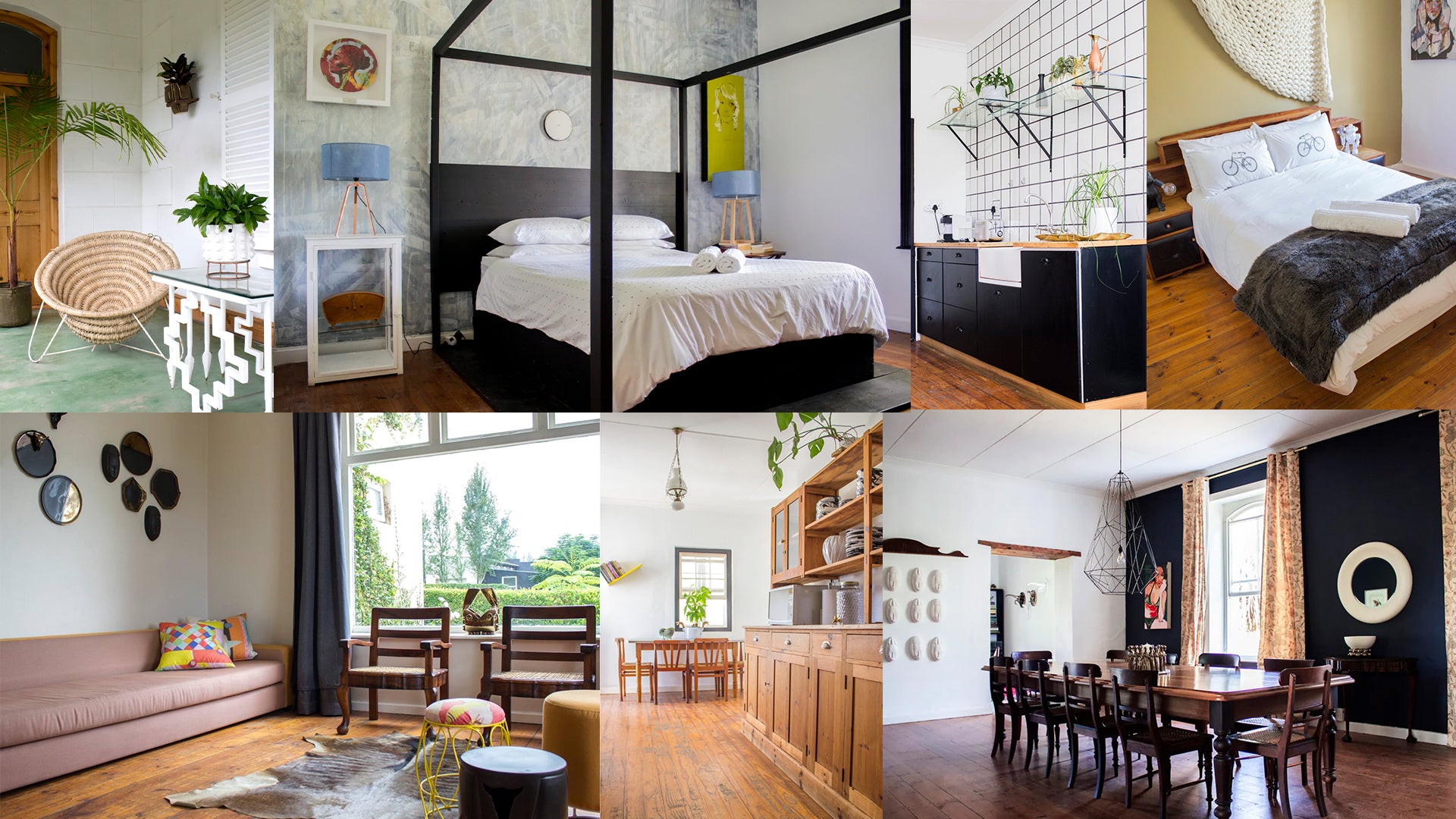

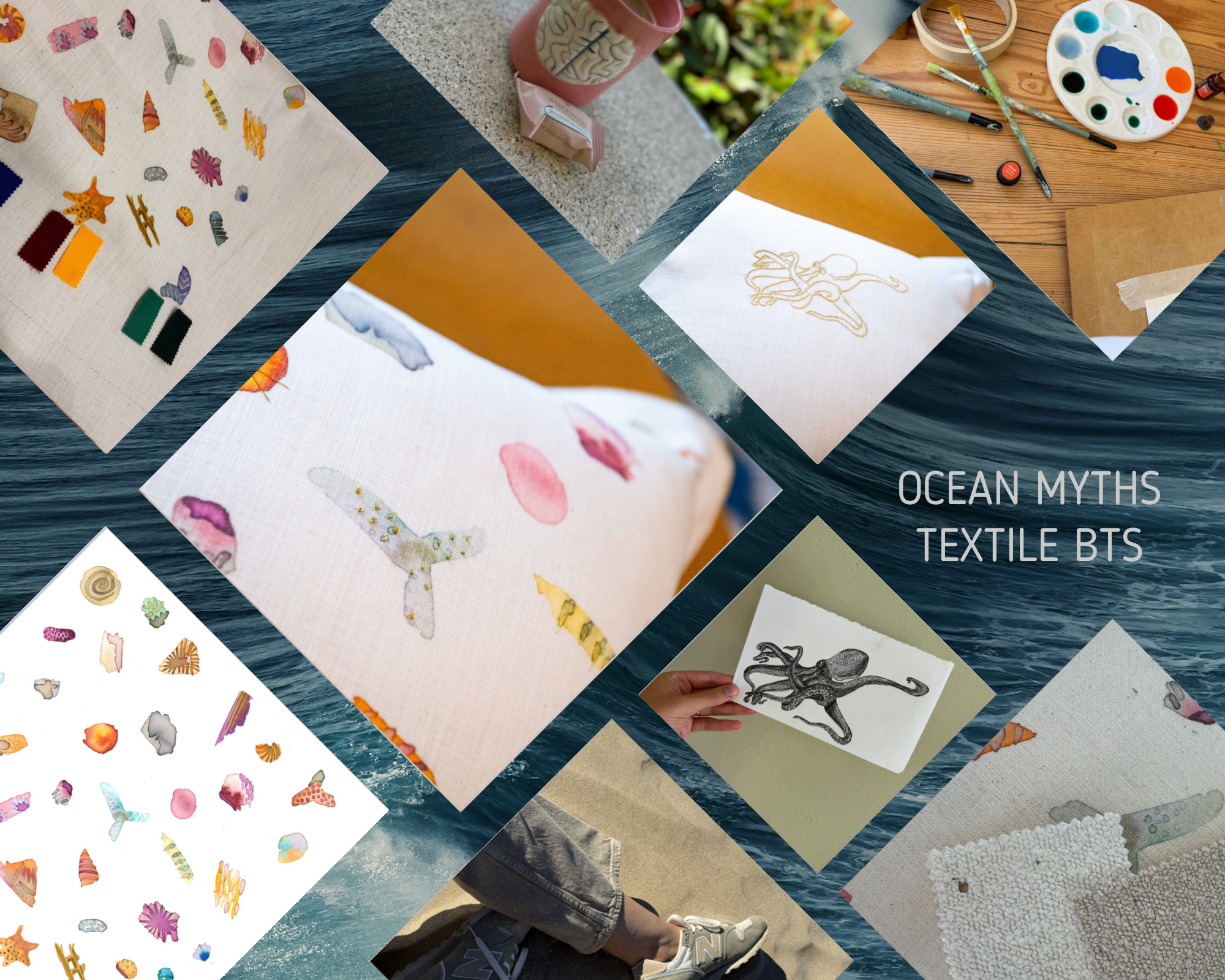
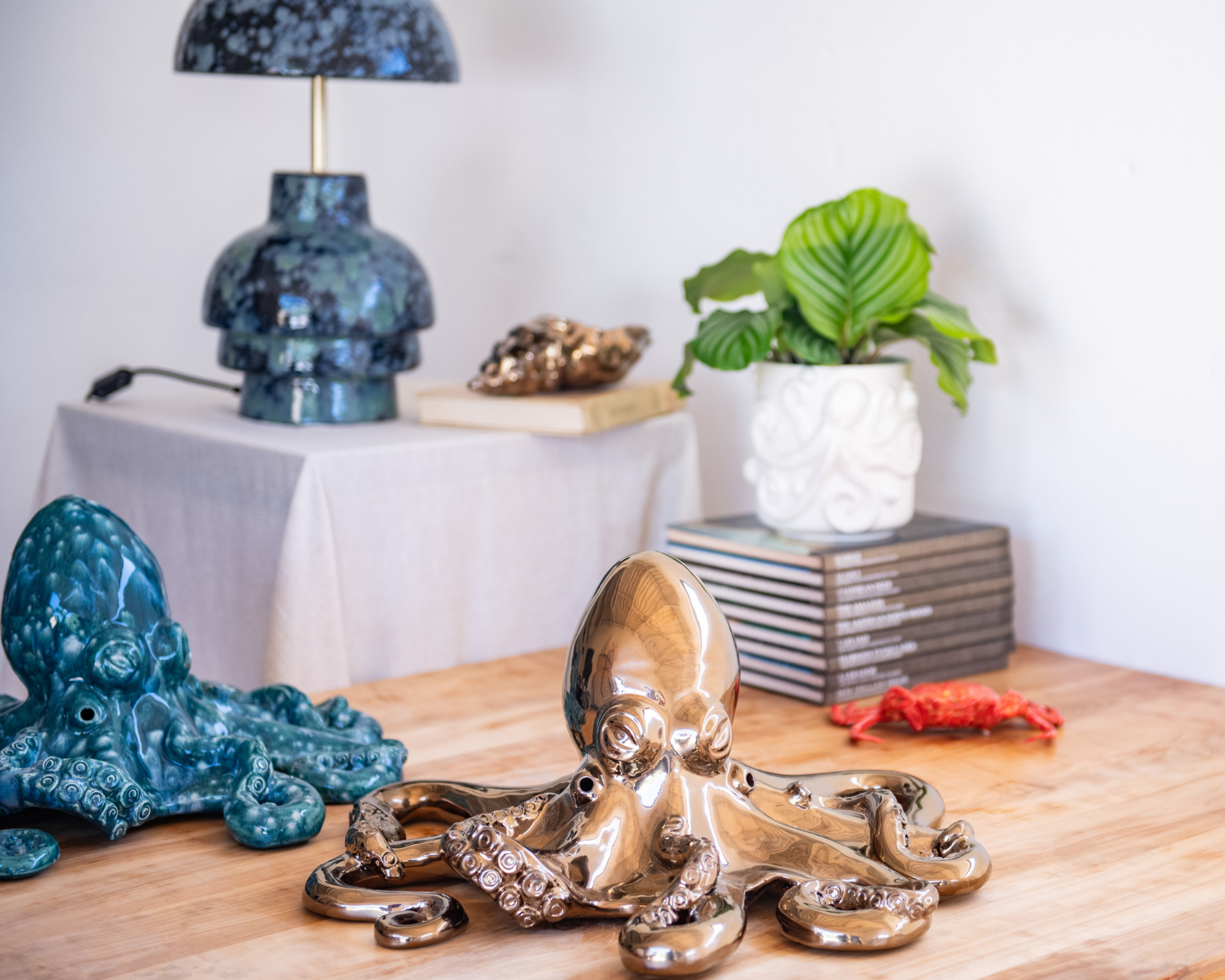
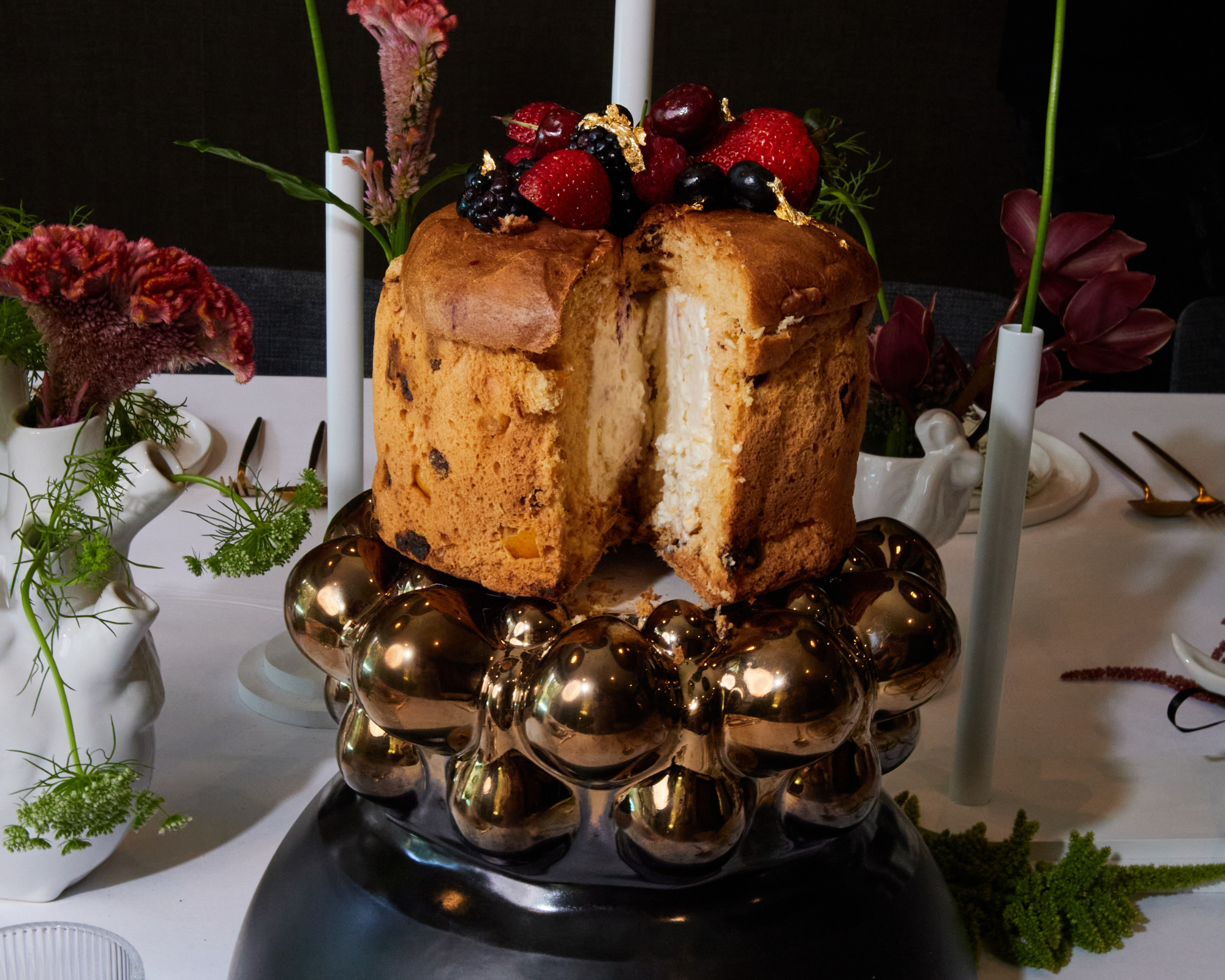
Leave a comment
This site is protected by hCaptcha and the hCaptcha Privacy Policy and Terms of Service apply.